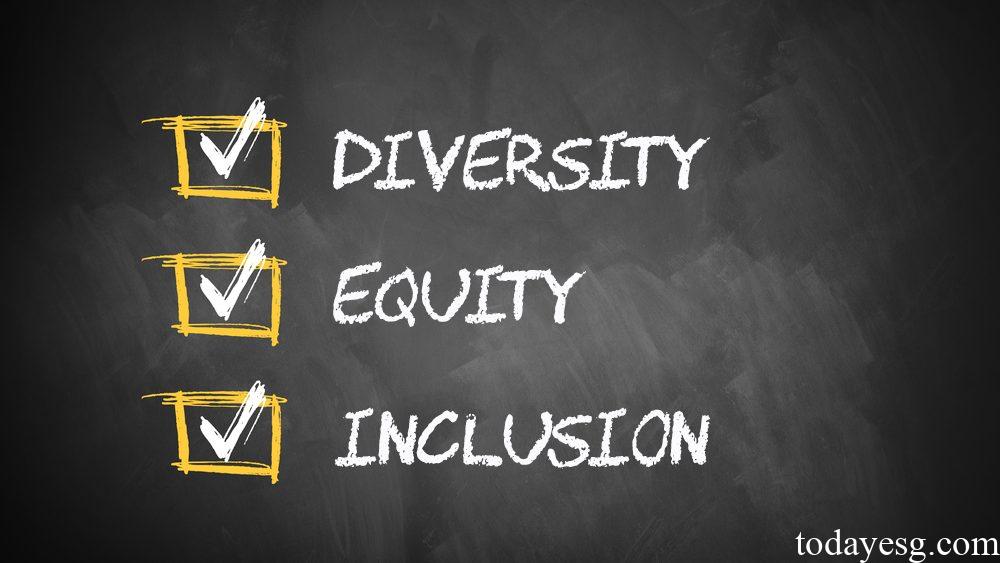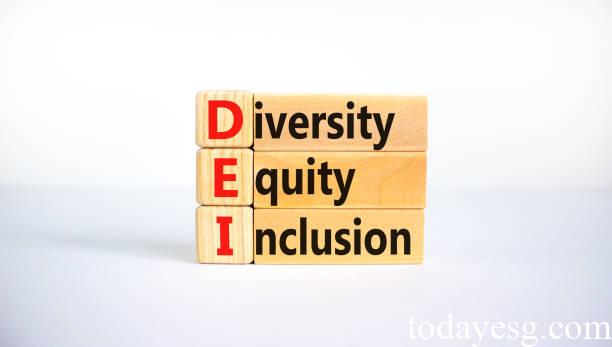What is Diversity Equity and Inclusion
DEI (Diversity Equity and Inclusion) is an important concept of ESG at the social level, which is usually applicable to companies and organizations implementing ESG strategy. The three elements of DEI are closely related to employees. Companies adopting DEI will assume more social responsibilities, gain advantages in improving creativity and work efficiency, and take the initiative in ESG development.
This article takes the DEI Code (issued by CFA Institute) as an example to analyze the origin, content and current development of Diversity Equity and Inclusion.
Origin of DEI Code
To promote the application of the DEI in investment industry, CFA Institute established DEI Code Working Shop in March 2020, and prepared the first draft of the DEI Code in July 2021. In February 2022, after accepting the suggestions by the financial industry, CFA Institute issued the official version of the DEI Code and began to accept financial institutions as signatories.
CFA Institute requires that the signatories should confirm that the DEI policy has been adopted in the company within two years, and report the annual development of the company’s DEI according to the reporting framework developed by the Institute.

Content of DEI Code
CFA Institute first defines DEI:
- Diversity: all employees of the company include all aspects of attributes, views, identities and backgrounds;
- Equity: all employees in the company receive support, opportunities and promotion fairly;
- Inclusion: all employees can feel respect, importance and safety in the company;
After that, CFA Institute puts forward six principles for signatories, which are:
- Expand diversified talent channels. Diversified talents are very important for the long-term development of the industry. The signatory should seek capable talents from various representative groups and expand the diversity of talents through continuous and systematic efforts;
- Design inclusive and fair recruitment process. Whether it is a junior position or an experienced senior position, the company needs to develop an inclusive recruitment process, while reducing the obstacles faced by interviewees;
- Implement an inclusive and fair promotion and retention process. For existing employees, the company needs to create, implement and regularly review the promotion and retention process to promote the training and development of employees;
- Promote the company to adopt and improve DEI Code. The signatory needs to work as a leader, complete the company’s progress in diversity, equity and inclusion, and have an impact on stakeholders;
- Promote the application of DEI in the industry. The signatories need to encourage other financial institutions to participate in the DEI Code and improve the application of in the industry;
- Report the development of DEI regularly. The signatories need to regularly report the development of DEI to the company’s management and CFA Institute, ensure that the company is making progress, and cooperate with the Institute to develop industry standards on the measurement of DEI;
CFA Institute hopes that signatories take these principles as the minimum action standards and implement the most influential measures according to its own situation. The Institute will update these contents every year to reflect Diversity Equity and Inclusion practice in the industry.
Development of DEI Code
In February this year, CFA Institute said that on the occasion of the first anniversary of the official publication of the DEI code, more than 100 financial institutions in the United States and Canada have become signatories. The total assets under management of these signatories exceeded US $11.2 trillion, accounting for about 10% of the total size of the global asset management industry.
CFA Institute requires these signatories to provide DEI development report in the first half of this year in order to analyze these data and provide the industry’s disclosure standards. At the same time, the Institute hopes to promote DEI Code to the European financial industry and obtain a broader signing group.
Reference:
Diversity, Equity, and Inclusion Code
Contact:todayesg@gmail.com








